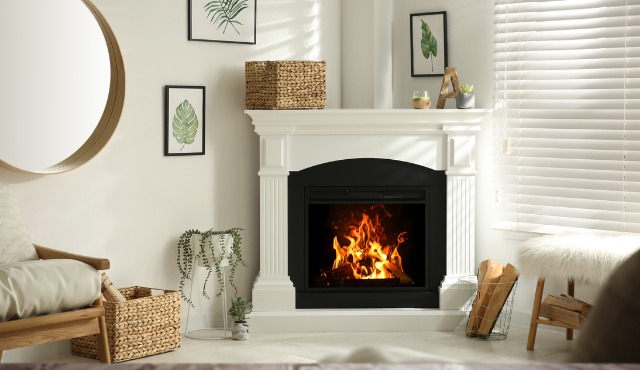By Dixie Somers
Whether you're in the market for a fireplace or are just looking to upgrade your existing one, it's important to consider all your options. Two of the most popular choices are wood and gas fireplaces—but which is right for you? Let's explore the differences between wood and gas fireplaces to help you make an informed decision.
Ease of Use
One obvious difference between wood and gas fireplaces is ease of use. Gas fireplaces are much easier to light than their wood-burning counterparts; all it takes is the push of a button or flip of a switch, and you have instant heat. On the other hand, lighting a wood-burning fireplace requires more effort—you must gather kindling, create a proper airflow and make sure that the logs remain lit. If you're looking for convenience, then gas is certainly the way to go.
Maintenance Considerations
Gas fireplaces require much less maintenance than traditional wood-burning ones; there's no need to constantly clean up ash or chop wood. However, gas fireplaces do require occasional maintenance such as cleaning out creosote buildup in the chimney or inspecting pipes for any potential problems. For those who don't want to deal with regular upkeep efforts, a gas fireplace may be the better choice.
Installation
When it comes to installation, gas fireplaces are typically easier to install than wood-burning versions. Gas insert installation requires less manual labor, as they don't need to be built up from the ground or have a chimney installed. But if you don't already have gas lines in your home, then you'll need to hire an expert who can install the necessary pipes and venting to make sure your gas fireplace is safe. On the other hand, wood-burning fireplaces require more manual labor and usually need a chimney for proper ventilation. So if you're looking for an easier installation process, consider opting for a gas fireplace instead of a wood-burning one.
Environmental Impact
When comparing wood and gas fireplaces, it's important to consider which option is better for our environment. The EPA has deemed that both types can produce hazardous air pollutants when used incorrectly; however, some studies suggest that properly venting a natural gas appliance could reduce certain pollutants by approximately 70%. If preserving our environment is important to you, then investing in a quality venting system might be worth considering if you decide on a natural gas fireplace.
Making an informed decision about what type of fireplace to install can seem overwhelming—especially when considering all factors like cost, convenience, maintenance needs and environmental impact—but this comparison should provide some helpful insight into whether a wood or gas fireplace would be best suited for your home. Ultimately it comes down to personal preference; weigh your options carefully before making your final decision! Whatever option you choose will bring warmth and beauty into your home while providing hours of cozy enjoyment during chilly days and nights!
 Dixie Somers is a freelance writer who loves to write for business, health and women’s interests. She lives in Arizona with her husband and three beautiful daughters.
Dixie Somers is a freelance writer who loves to write for business, health and women’s interests. She lives in Arizona with her husband and three beautiful daughters.








